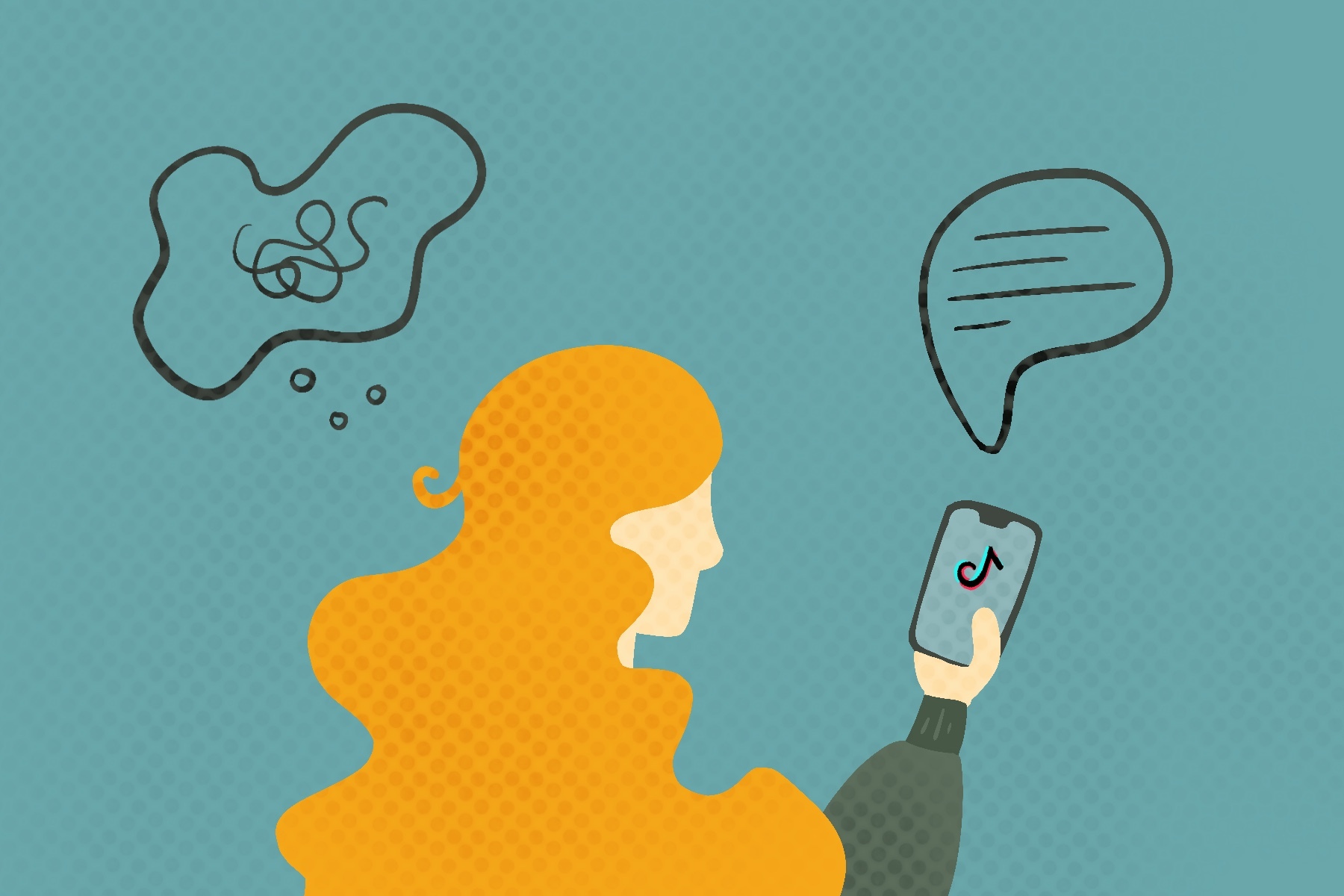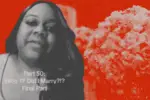After sitting down to watch some videos on TikTok, there’s a good chance that you’ll find yourself still scrolling three hours later, wondering how the time has managed to escape you. Many people are finding themselves addicted to the satisfaction that stems from scrolling through funny and heart-warming content. Lately, however, there has been a shift from teenagers making silly dance videos — TikTok viewers of all ages are now congregating on the app in an attempt to cheer themselves up, connect with others and gain access to mental health professionals.
The app has grown exponentially since its founding, with over 2.6 billion downloads and about 1.1 billion monthly active users as of January 2021. TikTok’s unique algorithm caters videos directly to each user, predicting what each person wants to see based on videos and topics they have spent time watching and interacting with in the past. These videos are placed onto a user-specific page called the For You Page (FYP). Because viewers have access to hours and hours of content catered specifically for them, it’s easy for people to fall down the TikTok wormhole and lose their sense of time.
The COVID-19 pandemic made an overwhelming number of things challenging for everyone, but it has been especially difficult to communicate with others now more than ever before. The stress of surviving a global pandemic has caused an exponentially large number of people to develop mental health issues such as anxiety and depression. For many reasons, people are left without access to mental health resources and are forced to struggle alone.
Despite the increase in mental health awareness and the increased community among those who struggle with mental health disorders, there is still an unfair stigma placed upon those who speak out. The most common assumption about those battling mental health crises is that they are faking symptoms and are simply seeking attention. Brave individuals who share their lives with others on social media are continuously being invalidated by ignorant, entitled people in the comment section.
In response to expanded mental health awareness and the desperate cries of those with mental illnesses, professionals including therapists, psychiatrists and social workers have flocked to the app to help those who need it. Many other apps have followed suit, including sites like BetterHelp that match people with licensed, professional therapists from the comfort of their own homes. TikTok should not be used as a replacement for therapy; however, the platform allows professionals to reach a broader spectrum of people, especially those who would otherwise not have access to these resources. These accounts are designed to de-stigmatize the process of seeking therapy and provide doses of therapeutic tips. They can be found by searching “#tiktoktherapist.”
An account under the username that.anxious.therapist uses popular, trending sounds on TikTok to amplify her videos’ views. Alysia is a licensed professional clinical counselor and a substance abuse counselor. Her account is growing at a rapid pace, currently standing at over 483,400 followers. She brings her viewers’ attention to some symptoms of anxiety that many people may not be aware of and a few ways to cope with them.
@that.anxious.therapist Who is brave enough to raise their hand in the comments? 🙋🏼♀️ #anxiety #mentalhealthmatters #foryou
As demonstrated in one of her videos, some of these symptoms may include digestive problems, aches and pains, frequent urges to pee and excessive sweating. To combat high anxiety and the awkward symptoms it may cause, Alysia prescribes daily probiotics; increased hydration; decreased caffeine, nicotine and alcohol use; and ice for sensorial stimulation. Her account showcases her attempts to normalize going to therapy and talking about mental health. “People don’t fake depression,” Alysia says in a down-to-earth video to her followers. “People fake being okay. So, remember that and be kind to others and be kind to yourself.”
Kristen, the owner of the TikTok account notyouraveragethrpst, is a licensed clinical social worker and certified substance abuse counselor. She has over 318,700 followers on her account. Her humorous videos offer educational tips about setting boundaries and managing emotions. Emotions, while unpredictable and hindering in some ways, help people communicate with others and remind them that they are human. Kristen caters her account to her younger audience while also offering advice on how parents can support and validate their children when they are struggling.
@notyouraveragethrpst What do you look for in a therapist?? There is one for everyone! You just gotta find yours! #clocktherapist
She advertises herself as a more approachable therapist for young people, one that makes videos on TikTok, swears and understands meme references, but will also hold her clients accountable for the goals they set. “You know that space between where you are and where you want to be?” Kristen offers in her video. “That space is meant to challenge you, not to scare you away from taking the first step.” Similar advice and other funny videos can be found on her channel.
On his channel amoderntherapist with a following of over 453,600, Dr. Justin Puder reinforces the benefits of going to therapy and offers the motivation that people need to seek help. He is also vulnerable and honest with his audience about his own struggles with mental health. Recently, he has addressed some common misconceptions about therapy, hammering in the idea that therapy isn’t only for people with trauma.
@amoderntherapist Follow for info on when positivity can be helpful! 🙌🏽 #toxicpositivity #mentalhealthmatters #tiktoktherapist #psychologist
Instead, Dr. Puder explains, “Therapy is for anyone looking to improve their mental health and life.” He continuously urges clients to be open and honest with their therapists to receive the help that they need. Dr. Puder has also made various videos about the concept of toxic positivity. This happens to people when they think being positive will solve all their problems in life. This mindset is invalidating because it forces people to suppress their emotions, raises stress hormones in the body and makes people inauthentic. Some of the best comedians, actors and academics are depressed, so it’s okay not to feel happy 100% of the time.
One of the most popular mental health professionals on TikTok is Matthias J. Barker, a psychotherapist with over 2 million followers. Barker specializes in relational conflict and anxiety and offers prerecorded workshop videos backed by psychological research on his website. His videos include slow music and soft lighting, making his audience feel as though they are sitting in therapy with him. Unlike other mental health professionals on TikTok, Barker looks directly into the camera and addresses his audience in the second person, very rarely appealing to his audience with funny content.
@matthiasjbarker
Many of his videos are about the importance of setting boundaries. People may need to set boundaries if they feel uncomfortable having conversations about certain subjects. It can be difficult to find the right words to say to a person in these situations, especially if they were never taught the correct language or if their boundaries were disrespected in the past. Barker emphasizes that it can feel mean to set boundaries, especially if you are with people that you care about. Still, it’s important to remain firm and strong when teaching people how to treat you.
TikTok therapists are using their social media platforms to encourage young people on the app to seek help before their mental health deteriorates further. Generation Z, the largest population of TikTok users, is growing more and more comfortable talking about their mental health, but it is still difficult to ask for help when it is needed. The education that these accounts are offering is causing other apps and websites to follow suit.
No one has themselves together all of the time. Numerous therapists went into mental health education because they were learning how to deal with their own struggles. Therapists also have therapists of their own. Never be afraid to reach out to a licensed professional for help if your bad days are a little more intense than just “feeling blue.”

















